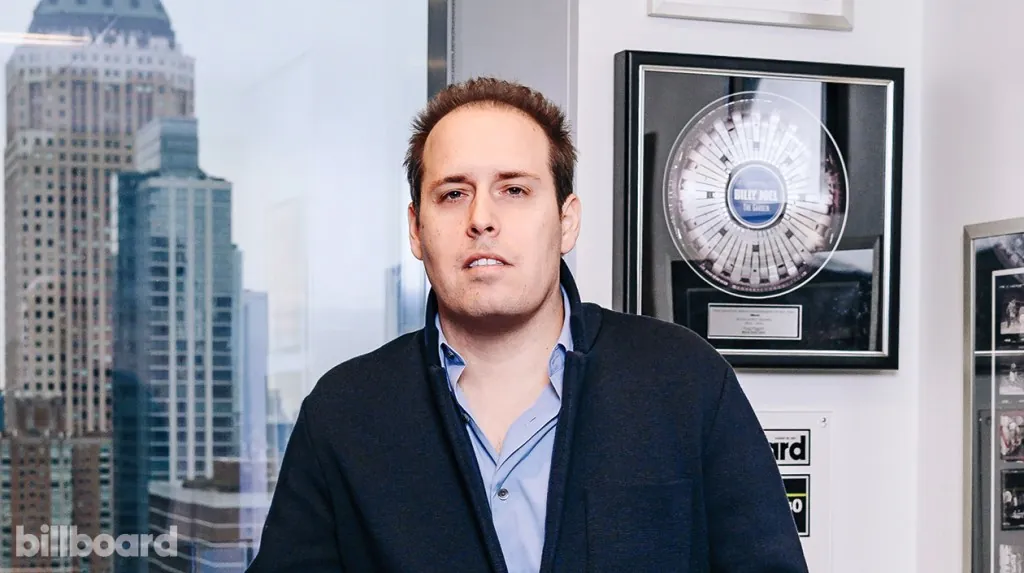Unlock Funding Clarity with beatBread’s New Deal Comparison Tool for Music Pros


Photo Credit: Alexander Mils
Music finance tech platform beatBread has established itself as a significant force in artist financing. The company has successfully completed over 1,500 advances to artists, songwriters, labels, and distributors since its launch. Now the company is turning that transparency-focused funding initiative towards music companies—labels, distributors, and publishers—who want more flexibility and clarity in their funding options.
The following was created in collaboration with beatBread, a proud partner of Digital Music News.
The platform is recognized for its data-driven approach to forecasting artist revenues and structuring flexible funding deals—making it a go-to for indie musicians seeking alternatives to traditional label contracts. Now beatBread is expanding into serving a broader segment of the music industry—rights owners like labels, distributors, managers, and anyone else seeking funding for their catalog plus new releases. This infrastructure can empower not just individual creators, but companies and organizations that support, invest in, or partner with creatives.
beatBread’s label funding allows labels and rights holders to retain 100% ownership of their music unless they choose to sell, offering flexibility to match individual business strategies. Rights holders decide the deal term and select which parts of their catalog are included, ensuring maximum control and tailored financing.
There is no personal or corporate liability for assets or projects that under-perform, reducing risk for both new and established players. Labels can choose to stay with their current distributor or switch to a beatBread partner to access larger advances. For distributors, beatBread offers a white-label advance service, enabling them to present funding under their own brand, which can help accelerate artist acquisition from within their networks.
The other centerpiece of beatBread’s expanded offering is its new Deal Comparison Tool. This tool is designed to function as the Kayak or NerdWallet of music financing, providing a structured, transparent way for rights holders to compare multiple funding offers side-by-side—so they make the best decision for their unique circumstances. Let’s take a quick peek at how this tool works.
“Control, independence, and flexibility are central to Victor Victor’s success,” Steven Victor, Victor Victor Worldwide told Digital Music News. “I had several large offers to fund my business and beatBread’s Comparison Tool helped me analyze the pros and cons of each and then find an even better deal.”
Users including artists, labels, and managers can input the details of funding offers received from various sources, including major labels, independent distributors, and beatBread’s own network partners. This deal comparison tool uses a data-driven algorithm to create a unique overview of all offers on the table by analyzing aspects of each deal including total advance, term length, recoupment structure, royalty splits, and ownership terms.
Once all data is entered, users are then presented with a visualization that maps out how each deal’s cashflow, costs, and recoupment would play out over time—based on the artist’s or label’s projected performance. Users can also run different scenarios, helping them understand how varying levels of success or under-performance would affect their financial outcomes. Labels and distributors often fund projects themselves or bring in external partners. For these entities, beatBread’s Deal Comparison Tool provides clarity and leverage in negotiations by enabling them to evaluate capital options with unprecedented transparency.
Historically, music financing has been an opaque process, with headline terms often masking unfavorable conditions or hidden costs. beatBread’s Deal Comparison Tool addresses this problem by surfacing the ‘real terms’ of each deal—how cash timing, total cost, and long-term commitments will actually affect the user’s business. In beta testing, around 60% of users chose a different deal after using the tool, highlighting the gap between perceived and actual deal quality.
Digital Music News sat down with Dan Englander of KingUnderground to discuss how the beatBread Deal Comparison Tool helped him find clarity and a better funding option for his label.
KingUnderground was founded in 2005 by Dan in Milton Keynes, England as a label for underground hip-hop. But Dan soon branched out and began signing artists in the funk, soul, and jazz genres. KingUnderground’s roster includes artists like Lewis Parker, High Pulp, Magic in Threes, The New Mastersounds, Yogisoul, and Torb the Roach—reflecting Dan’s commitment to diverse, boundary-pushing music. KingUnderground itself operates as both a label and distributor—even collaborating with other labels on merchandise to round out its creative business model.
When beatBread reached out to Dan, he was already in deep discussions with major distributors—seeking a deal with more favorable terms than the one he had already struck. Dan’s unique position meant he needed enough funding to buy out the terms of his previous deal while providing cash flow to keep daily operations going. Previous discussions with other major labels were productive, but Dan told Digital Music News that none offered the clean break from his previous, suffocating deal. Dan’s previous deal advanced production money but recouped at 100%, leaving the label cash-strapped whenever income slowed—with no room for negotiation.
The Deal Comparison Tool from beatBread became a lifeline for Dan, not only presenting a competitive offer, but also working to analyze other offers against the one beatBread provided. Dan was able to visualize the impact of each deal through visual graphs and scenario modeling—giving him a virtual stress test for each option. What stood out most for him was the ‘catalog only’ deal—a structure giving KingUnderground the freedom to separate catalog funding from future releases. The tool’s clarity revealed the true cost of each deal, including royalty splits, recoupment structures, and the risk of being locked into yet another deal with inflexible terms.
Dan was particularly struck by beatBread’s hands-on approach to helping him secure the best funding option for his needs. Unlike some larger distributors, beatBread took the time to understand KingUnderground’s unique needs when it came to overheads, artist royalties, and the importance of sustainable cash flow. The offer beatBread came up with didn’t include strict performance targets or contingencies, giving Dan the confidence to move forward with that funding offer. Dan told Digital Music News that the catalog-only structure of that deal was a decisive factor in him choosing beatBread.
The experience with beatBread’s Deal Comparison Tool has reshaped how KingUnderground approaches financing. Dan plans to keep all options on the table in the future, but credits this tool and beatBread’s CEO with direct communication that offered a transparent look at how each deal could impact his future business.
beatBread’s Deal Comparison Tool is more than just convenience; it’s a shift toward greater transparency and empowerment across the music industry. For labels, distributors, and managers, the ability to see and compare multiple offers side-by-side means making smarter, more informed decisions about funding. This is especially valuable for independent operators, who have historically lacked the leverage and information major players in the industry have readily available. As the industry moves toward data-driven dealmaking, creator empowerment, and heightened expectations for transparency, tools like those beatBread offers are resetting the baseline for how major funding decisions are made.
By making deal terms visible and customizable, beatBread is helping to level the playing field for these smaller music industry players. The tool’s success with KingUnderground highlights a future where transparency is the standard—not the exception. This shift isn’t just about beatBread as a capital provider. The company is positioning itself as an infrastructure player, building an environment where smarter, more informed financing decisions are standard across the industry.
“Our mission is to empower artists and labels with choice, insights, and leverage,” beatBread CEO Peter Sinclair tells Digital Music News. “The only way to ensure that indie artists and labels get the best possible terms is to offer them choice, leverage, and the analytical tools to make smart decisions.”
“Having access to transparent, side-by-side comparisons meant I’m not just accepting the first offer that comes my way,” Dan shared with Digital Music News. “I could see the real trade-offs [of each deal] and negotiate from a position of strength.”
Other labels working with beatBread echo this sentiment. “beatBread label funding has enabled us to expand our operations and acquire new repertoire,” Bugwu Aneto-Okeke of M.A.D. Solutions in Nigeria adds. “In addition to giving us funding on a deal-by-deal basis, we have a fund that we can draw additional funds from as we see fit. beatBread gave us the financial muscle to compete more effectively in the fast-growing African market.”
The competitive ripple effect is already visible across the industry. As more rights holders use beatBread’s comparison tools, everyone vying to fund artists or labels must elevate their offerings in response. Deal terms that once seemed opaque or non-negotiable are now being scrutinized with a fine-tooth comb—with bad deals being culled from consideration before they cause harm. Around 60% of beatBread’s beta testers chose a different deal after seeing the full picture—including Dan for KingUnderground.
Looking ahead, beatBread’s Deal Comparison Tool could reset expectations not just for how funding is secured, but for how deal conversations are initiated across the board. Artists, managers, labels, and distributors now have a common language and framework for evaluating offers on the table—a change that could redefine the relationship between creators and capital for years to come.
Link to the source article – https://www.digitalmusicnews.com/2025/08/12/beatbread-deal-comparison-tool-music-pros/
-
Alesis Recital Pro – 88 Key Digital Piano Keyboard with Hammer Action Weighted Keys, 2x20W Speakers, 12 Voices, Record and Lesson Mode, FX and Display$379,00 Buy product
-
Hamzer 61-Key Portable Electronic Keyboard Piano with Stand, Stool, Headphones, Microphone & Sticker Sheet$129,99 Buy product
-
MTUERANC 5Pin DIN Cable, DIN 5Pin MIDI Male to 3.5mm TRS Male Stereo Plug 90 Degree Angle Audio Connection Cable for Sound Card Keyboard Piano Drum Recording, Red (3M/10Ft)$9,99 Buy product
-
Ktaxon 4 String Electric Bass Guitar, Beginner Electric Bass Guitars Kit with Gig Bag, Shoulder Strap & Cable, Accessories, 42.5″ Single-Coil Pickup Bass Guitars W/Fixed Bridge (Nature)$69,99 Buy product
-
Tannoy Gold 7 6.5-inch Powered Studio Monitor$299,00 Buy product
-
Fender Amplifier Stand, Large$59,99 Buy product












Responses